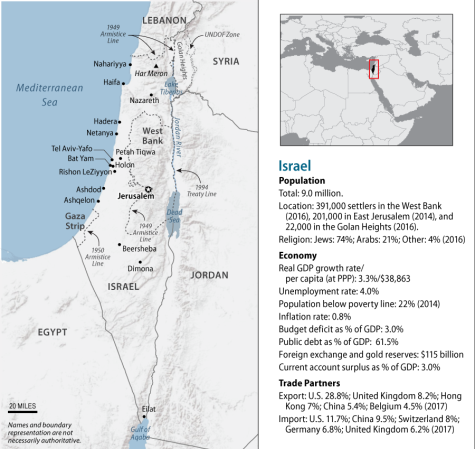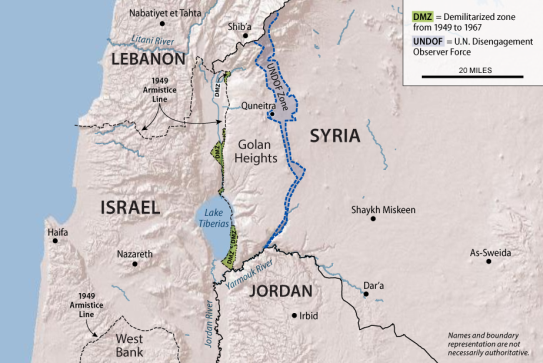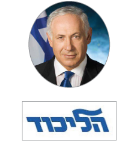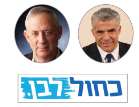Israel: Major Issues and U.S. Relations
Changes from June 13, 2019 to September 10, 2019
This page shows textual changes in the document between the two versions indicated in the dates above. Textual matter removed in the later version is indicated with red strikethrough and textual matter added in the later version is indicated with blue.
Contents
- Introduction: Major Issues for U.S.-Israel Relations
- How Israel Addresses Threats
- Military Superiority and Homeland Security Measures
- Undeclared Nuclear Weapons Capability
- U.S. Cooperation
- Iran and the Region
- Iranian Nuclear Agreement
and the, U.S. Withdrawal - Syria
Periodicand Sanctions, and 2019 Gulf Tensions- Syria, Iraq, and Lebanon
- Hezbollah
Syria and Iraq: Reported Israeli Airstrikes Against Iran-Backed Forces- Golan Heights
- Hezbollah in Lebanon
- Israeli-Palestinian Issues Under the Trump Administration
- Domestic Issues and September 2019 Elections
Tables
Summary
Strong relations between the United States and Israel have led to bilateral cooperation in many areas. MattersThe following matters are of particular significance to U.S.-Israel relations include
- :
Israel's ability to address threats. Israel relies on a number of strengths—including regional conventional military superiority—to manage potential threats to its security, including
Israel's ability to address the threats it faces in its region. - Shared U.S.-Israel concerns about Iran and its allies on the nuclear issue and in Syria and Lebanon.
- Israeli-Palestinian issues.
- Israeli domestic political issues, including elections scheduled for September 2019.
Israel relies on a number of strengths to manage potential threats to its security and existence. It maintains conventional military superiority relative to neighboring states and the Palestinians. It also takes measures to deter, attack, and defend its population and borders from evolving asymmetric threats such as rockets and missiles, cross-border tunneling, drones, and cyberattacks. Additionally, Israel has an undeclared but presumed nuclear weapons capability. Against a backdrop of strong bilateral cooperation, Israel's leaders and supporters routinely make the case that Israel's security and the broader stability of the region remain critically important for U.S. interests. A 10-year bilateral military aid memorandum of understanding (MOU)—signed in 2016—commits the United States to provide Israel $3.3 billion in Foreign Military Financing annually from FY2019 to FY2028, along with additional amounts from Defense Department accounts for missile defense. All of these amounts remain subject to congressional appropriations. Some Members of Congress criticize various Israeli actions and U.S. policies regarding Israel. In recent months, U.S. officials have expressed some security-related concerns about China-Israel commercial activity.
Iran and the region. Israeli officials seek to counter Iranian regional influence and prevent Iran from acquiring nuclear weapons. In April 2018, Prime Minister Binyamin Netanyahu presented historical information about Iran's nuclear program that Israeli intelligence apparently seized from an Iranian archive. The presentation came days before President Trump announced the U.S. withdrawal from the 2015 international agreement that constrainsconstrained Iran's nuclear activities. It is unclear whether Israel might take future military action in Iran if Iranian nuclear activities resume. Since 2018, Israel has conducted a number of military operations in Syria against Iran and its allies, including Lebanese Hezbollah. Israel and Iran also appear to be competing for military advantage over each other at the Israel-Lebanon border. Amid uncertainty in the areaIsrael has reportedly conducted a number of military operations in Syria, Iraq, and Lebanon against Iran and its allies due to concerns about Iran's efforts to establish a permanent presence in these areas and improve the accuracy and effectiveness of Hezbollah's missile arsenal. Israel-Iran tensions increased somewhat during summer 2019 amid international concerns over the security of Persian Gulf energy commerce and questions about possible U.S.-Iran conflict or negotiation. In the context of ongoing uncertainty in Syria, in March 2019 President Trump recognized Israel's claim to sovereignty over the Golan Heights, changing long-standing U.S. policy that held—in line with U.N. Security Council Resolution 497 from 1981—the Golan was occupied Syrian territory whose final status was subject to Israel-Syria negotiation.
Israeli-Palestinian issues. The prospects for an Israeli-Palestinian peace process are complicated by many factors. Palestinian leaders cut off high-level political contacts with the Trump Administration after it recognized Jerusalem as Israel's capital in December 2017. U.S.-Palestinian tensions have since worsened amid U.S. cutoffs of funding to the Palestinians and diplomatic moves—including the May 2018 opening of the U.S. embassy to Israel in Jerusalem. The Administration claims it has prepared a plan that proposes specific solutions on the core issues of the conflict, but has repeatedly postponed the release of the plan has been repeatedly postponed and some question whether it will ever happen. Palestinian leaders are wary of possible U.S. attempts to pressure them by economic means into difficult political concessions. While Israel may count on warming ties with Arab Gulf states over Iran to carry over into Israeli-Palestinian diplomacy, these states' leaders maintain explicit support for a Palestinian state with a capital in Jerusalem. In August 2019, Israel and the Palestinian Authority (PA) took initial measures aimed at relieving a PA fiscal crisis surrounding the transfer of revenues that Israel collects on the PA's behalf. Netanyahu has pledged to annex parts of the West Bank if he is reelected as prime minister.
Domestic issues. Israel will hold another round of Knesset elections on September 17, into difficult political concessions through U.S. policies and initiatives—including an event scheduled for June 2019 in Bahrain to discuss Palestinian economic development. Israeli Prime Minister Binyamin Netanyahu has pledged to begin annexing Israeli settlements in the West Bank if he forms the next Israeli government. While Israel may count on warming ties with Arab Gulf states over Iran to carry over into Israeli-Palestinian diplomacy, these states' leaders maintain explicit support for a Palestinian state with a capital in Jerusalem.
Domestically, Israel will hold another round of Knesset elections in September 2019, after Netanyahu was unable to form a government following April 2019 elections and the Knesset dissolved itself. The elections may come too late for a new Netanyahu government (if he wins) to pass legislation protecting himA new government (if it is so inclined) may face time constraints to passing legislation that could protect Netanyahu from indictment on three pending corruption charges. ANetanyahu's pre-indictment hearing is scheduled to take place in early October.
Introduction: Major Issues for U.S.-Israel Relations
Strong relations between the United States and Israel have led to bilateral cooperation in many areas. Matters of particular significance include the following:
- Israel's own capabilities for addressing threats, and its cooperation with the United States.
- Shared U.S.-Israel concerns about Iran
, within the context of the U.S. exit from the 2015 international nuclear agreement, and tension involving Iran and Hezbollah at Israel's northern border with Syria and Lebanon's nuclear program and regional influence, including with Iran's Lebanon-based ally Hezbollah. Israel has reportedly engaged in airstrikes against Iranian or Iran-allied targets in Syria and Iraq. - Israeli-Palestinian issues and U.S. policy, including the Trump Administration's actions on political and economic matters to date.
- Israeli domestic political issues, including upcoming elections in September 2019
after Prime Minister Binyamin Netanyahu was unable to form a government in May, in the context of probable corruption-related indictments against Netanyahu, and debates regarding ultra-Orthodox military conscription and judicial checks on Knesset majorities, in the context of probable corruption-related indictments against Prime Minister Binyamin Netanyahu. Netanyahu was unable to form a government in May after elections held in April.
For background information and analysis on these and other topics, including aid, arms sales, and missile defense cooperation, see CRS Report RL33476, Israel: Background and U.S. Relations, by Jim Zanotti; and CRS Report RL33222, U.S. Foreign Aid to Israel, by Jeremy M. Sharp.
How Israel Addresses Threats
Israel relies on a number of strengths to manage potential threats to its security and existence. These strengths include robust military and homeland security capabilities, as well as close cooperation with the United States.
Military Superiority and Homeland Security Measures
Israel maintains conventional military superiority relative to its neighbors and the Palestinians. Shifts in regional order and evolving asymmetric threats during this decade have led Israel to update its efforts to project military strength, deter attack, and defend its population and borders. Israel appears to have reduced some unconventional threats via missile defense systems, reported cyber defense and warfare capabilities, and other heightened security measures.
Israel has a robust homeland security system featuring sophisticated early warning practices and thoroughthorough border and airport security controls; most of the country's buildings have reinforced rooms or shelters engineered to withstand explosions. Israel also has proposed and partially constructed a national border fence network of steel barricades (accompanied at various points by watch towerswatchtowers, patrol roads, intelligence centers, and military brigades) designed to minimize militant infiltration, illegal immigration, and smuggling from Egypt, Syria, Lebanon, Jordan, and the Gaza Strip.1 Additionally, Israeli authorities have built a separation barrier in and around parts of the West Bank.2
 |
|
Sources: Graphic created by CRS. Map boundaries and information generated by Hannah Fischer using Department of State Boundaries (2011); Esri (2013); the National Geospatial-Intelligence Agency GeoNames Database (2015); DeLorme (2014). Fact information from CIA, The World Factbook; Economist Intelligence Unit; IMF World Outlook Database; Israel Central Bureau of Statistics. All numbers are estimates Notes: According to the U.S. executive branch: (1) The West Bank is Israeli occupied with current status subject to the 1995 Israeli-Palestinian Interim Agreement; permanent status to be determined through further negotiation. (2) The status of the Gaza Strip is a final status issue to be resolved through negotiations. (3) The United States recognized Jerusalem as Israel's capital in 2017 without taking a position on the specific boundaries of Israeli sovereignty. (4) Boundary representation is not necessarily authoritative. Additionally, the United States recognized the Golan Heights as part of Israel in 2019; however, U.N. Security Council Resolution 497, adopted on December 17, 1981, held that the area of the Golan Heights controlled by Israel's military is occupied territory belonging to Syria. The current U.S. executive branch map of Israel is available at https://www.cia.gov/library/publications/the-world-factbook/attachments/maps/IS-map.gif. |
Undeclared Nuclear Weapons Capability
Israel is not a party to the Nuclear Nonproliferation Treaty (NPT) and maintains a policy of "nuclear opacity" or amimut. A 2017 report estimated that Israel possesses a nuclear arsenal of around 80-85 warheads.3 The United States has countenanced Israel's nuclear ambiguity since
|
China-Israel Commercial Activity and Its Impact on U.S.-Israel Relations U.S. officials have raised some concerns with Israel over Chinese investments in Israeli high-tech companies and civilian infrastructure that could increase China's ability to gather intelligence and President Trump reportedly warned Prime Minister Netanyahu in March 2019 that U.S. security assistance for and cooperation with Israel could be limited if Chinese companies Huawei and ZTE establish a 5G communications network in Israel, in line with similar warnings that the Administration has communicated to other U.S. allies and partners.8 Additionally, the U.S. Navy is reportedly reconsidering its practice of periodically docking at the Israeli naval base in Haifa, because a state-owned Chinese company (the Shanghai International Port Group) has secured the contract to operate a new terminal at Haifa's seaport for 25 years (beginning in 2021).9 Other state-owned Chinese companies are developing a new port in Ashdod (which also hosts an Israeli naval base),10 and bidding to take part in construction for Tel Aviv's light rail system.11 For example, a state-owned Chinese company (the Shanghai International Port Group) has secured the contract to operate a new terminal at Haifa's seaport for 25 years (beginning in 2021), and another state-owned Chinese company (a subsidiary of China Harbour Engineering Company) is developing Ashdod's new port.7 Both Haifa and Ashdod host Israeli naval bases. Due to the Chinese contract for Haifa, the U.S. Navy is reportedly reconsidering its practice of periodically docking at the base there.8 Partly because of concerns about China, Israel has considered creating a government body to oversee sensitive commercial deals involving foreign companies,9 though some reports suggest that this may not occur.10 Previously, China-Israel defense industry cooperation in the 1990s and 2000s contributed to tension in the U.S.-Israel defense relationship and to an apparent de facto U.S. veto over Israeli arms sales to China.11 |
1969, when Israeli Prime Minister Golda Meir and U.S. President Richard Nixon reportedly reached an accord whereby both sides agreed never to acknowledge Israel's nuclear arsenal in public.12 Israel might have nuclear weapons deployable via aircraft, submarine, and ground-based missiles.13 No other Middle Eastern country is generally thought to possess nuclear weapons.
U.S. Cooperation
Israeli officials closely consult with U.S. counterparts in an effort to influence U.S. decisionmakingdecision-making on key regional issues, and U.S. law requires the executive branch to take certain actions to preserve Israel's "qualitative military edge," or QME.14 Additionally, a 10-year bilateral military aid memorandum of understanding (MOU)—signed in 2016—commits the United States to provide Israel $3.3 billion in Foreign Military Financing and to spend $500 million annually on joint missile defense programs from FY2019 to FY2028, subject to congressional appropriations.
Israel's leaders and supporters routinely make the case that Israel's security and the broader stability of the region remain critically important for U.S. interests. They also argue that Israel is a valuable U.S. ally.15 The United States and Israel do not have a mutual defense treaty or agreement that provides formal U.S. security guarantees.16
Although domestic U.S. support for Israel and its security has been strong for decades, and remains robust, some Members of Congress have criticized various Israeli actions and U.S. policies regarding Israel. In August 2019, Israel denied entry to Representatives Rashida Tlaib and Ilhan Omar, citing an Israeli law that permits authorities to bar supporters of the boycott, divestment, and sanctions (BDS) movement from visiting Israel.17 This action, among other things, has contributed to speculation that U.S. policy on Israel could become a more contentious domestic issue.18
Iran and the Region Israeli officials cite Iran as aIran and the Region
Iran remains of primary concern to Israeli officials, largely because of (1) Iran's antipathy toward Israel, (2) Iran's broad regional influence,17 and (3) the probability thatantipathy toward Israel expressed by Iran's revolutionary regime, (2) Iran's broad regional influence (especially in Syria, Iraq, and Lebanon),19 and (3) the recent and possible future loosening of some constraints on Iran's nuclear program could loosen in the future. In recent years,. Israel and Arab Gulf states have discreetly cultivated closer relations with one another during this decade in efforts to counter Iran.
Iranian Nuclear Agreement and the, U.S. Withdrawal
and Sanctions, and 2019 Gulf Tensions
Prime Minister Netanyahu has sought to influence U.S. decisions on the international agreement on Iran's nuclear program (known as the Joint Comprehensive Plan of Action, or JCPOA). He argued against the JCPOA when it was negotiated in 2015—including in a speech to a joint session of Congress—and. He also welcomed President Trump's May 2018 withdrawal of the United States from the JCPOA and accompanying reimposition of U.S. sanctions on Iran's core economic sectors. A few days before President Trump's May announcement, Netanyahu presented information that Israeli intelligence operatives apparently seized in early 2018 from an Iranian archive. He used the information to question Iran's credibility and highlight its potential to parlay existing know-how into nuclear-weapons breakthroughs after the JCPOA expires.1820 In his September 2018 speech before the U.N. General Assembly, Netanyahu claimed that Iran maintains a secret "atomic warehouse for storing massive amounts of equipment and materiel."1921 An unnamed U.S. intelligence official was quoted as saying in response, "so far as anyone knows, there is nothing in [the facility Netanyahu identified] that would allow Iran to break out of the JCPOA any faster than it otherwise could."20
After Netanyahu publicly exposed the Iranian nuclear archive, some former Israeli officials speculated about what action Israel might consider taking against Iranian nuclear facilities if Iran abrogates the JCPOA and expands nuclear activities currently restricted under the agreement.21 However, Netanyahu had said in an interview that he was not seeking a military confrontation with Iran.22
Syria23
Periodic Airstrikes Against Iran-Backed Forces
Israel and Iran have engaged in hostile action over Iran's presence in Syria. In the early years of the Syria conflict, Israel primarily employed airstrikes to prevent Iranian weapons shipments destined for the Iran-backed group Hezbollah in Lebanon.24 Later, as the Syrian government regained control of large portions of the country with Iranian backing, Israeli leaders began pledging to prevent Iran from constructing and operating bases or advanced weapons manufacturing facilities in Syria.25 Since 2018, Israeli and Iranian forces have repeatedly targeted one another in and over Syrian- and Israeli-controlled areas.26 In January 2019, Prime Minister Netanyahu said that Israel had targeted Iranian and Hezbollah targets in Syria "hundreds of times."27 Limited Israeli strikes to enforce "redlines" against Iran-backed forces could expand into wider conflict, particularly if there is a miscalculation by one or both sides.
U.S. involvement in Syria could be one factor in Israeli calculations on this issue. The U.S. base at Al Tanf in southern Syria has reportedly "served as a bulwark against Iran's efforts to create a land route for weapons from Iran to Lebanon."28 Israeli officials favor continued U.S. involvement in Syria, while also preparing for the possibility that they may need to take greater direct responsibility for countering Iran there.29
Golan Heights
U.S.-Iran tensions since the U.S. withdrawal from the JCPOA have led to greater regional uncertainty, with implications for Israel. During 2019, Iran has retaliated against U.S. sanctions by targeting U.S. military drones and seizing other countries' commercial vessels in the Persian Gulf. In July, Iran announced that it would gradually enrich uranium beyond JCPOA-imposed limits absent an easing of sanctions or their effects. Some sources suggest that the United States and Gulf states may consider addressing tensions with Iran through negotiation or accommodation,27 perhaps leaving Israel more directly responsible to manage its regional rivalry with Iran and its allies. In an August 2019 interview, Secretary of State Michael Pompeo expressed confidence that, in the event of conflict between Israel and Iran, President Trump would do "all that is necessary" to ensure Israel's protection and support its right to defend itself.28 Ongoing tension between Israel and Iran raises questions about the potential for Israel-Hezbollah conflict. Various sources have referenced possible Iran-backed Hezbollah initiatives to build precision-weapons factories in Lebanon.32 In late 2018 and early 2019, Israel's military undertook an effort—dubbed "Operation Northern Shield"—to seal six Hezbollah attack tunnels to prevent them from crossing into Israel.33 Israel has reportedly undertaken airstrikes in conflict-plagued Syria and Iraq based on concerns that Iran and its allies could pose threats to Israeli security from there. Iran's westward expansion of influence into Iraq and Syria over the past two decades has provided it with more ways to supply and support Hezbollah, apparently leading Israel to increasingly broaden its regional theater of military action.38 While Israeli actions have been episodic, one media report has said that "the accelerating pace of violent strikes … has raised the possibility that even a minor attack could spiral into a larger conflict."39 Since 2018, Israeli and Iranian forces have repeatedly targeted one another in Syria or around the Syria-Israel border. After Iran helped Syria's government regain control of much of the country, Israeli leaders began pledging to prevent Iran from constructing and operating bases or advanced weapons manufacturing facilities in Syria.40 In January 2019, Prime Minister Netanyahu said that Israel had targeted Iranian and Hezbollah targets in Syria "hundreds of times."41 U.S. involvement in Syria could affect future Israeli calculations there. The U.S. base at At Tanf in southern Syria has reportedly "served as a bulwark against Iran's efforts to create a land route for weapons from Iran to Lebanon."42 Russia, its airspace deconfliction mechanism with Israel, and some advanced air defense systems that it has deployed or transferred to Syria also influence the various actors involved.43 On March 25, 2019, President Trump signed a proclamation stating that the United States recognizes the Golan Heights (hereinafter, the Golan) to be part of the State of Israel.30 The proclamation stated that "any possible future peace agreement in the region must account for Israel's need to protect itself from Syria and other regional threats"31—presumably including threats from Iran and the Iran-backed Lebanese group Hezbollah. Israel gained control of the Golan from Syria during the 1967 Arab-Israeli war, and effectively annexed it unilaterally by applying Israeli law to the region in 1981 (see Figure 2).3222 In September 2019, Netanyahu presented satellite photos in an effort to support claims that Iran had built a facility for secret nuclear weapons-related work before destroying the facility in June 2019.23
President Trump's proclamation changed long-standing U.S. policy on the Golan. Since 1967, successive U.S. Administrations supported the general international stance that the Golan is Syrian territory occupied by Israel, with its final status subject to negotiation. In reaction to the U.S. proclamation, others in the international community have insisted that the Golan's status has not changed.3355 In Congress, Senate and House bills introduced in February 2019 (S. 567 and H.R. 1372) support Israeli sovereignty claims to the Golan, and would treat the Golan as part of Israel in any existing or future law "relating to appropriations or foreign commerce." Additionally, 10 Senators wrote a letter to the President in April urging him to take additional steps that would have the effect of treating the Golan Heights no differently than Israel for various U.S. government purposes.34
For decades after 1967, various Israeli leaders, reportedly including Prime Minister Netanyahu as late as 2011,3557 had entered into indirect talks with Syria aimed at returning some portion of the Golan as part of a lasting peace agreement. However, in the context of Syria's civil war and other changing factors, Netanyahu shiftedthe effect of civil war on Syria and the surrounding region, including an increase in Iran's presence, may have influenced Netanyahu to shift focus from negotiating with Syria on a "land for peace" basis to obtaining international support for Israel's claims of sovereignty. As part of the periodic conflict in Syria between Israel and Iran, some Iranian missiles have targeted Israeli positions in the Golan.3658
The Syrian government has denounced the U.S. policy change as an illegal violation of Syrian sovereignty and territorial integrity, and insisted that Syria is determined to recover the Golan.3759 Additionally, observers have argued that the policy change could unintentionally bolster Syrian President Bashar al Asad within Syria by rallying Syrian nationalistic sentiment in opposition to Israel's claims to the Golan and deflecting attention from Iran's activities inside Syria.38
|
 |
Source: CRS, based on data from ArcGIS, U.S. State Department, ESRI, and United Nations.
|
Since 1974, the U.N. Disengagement Observer Force (UNDOF) has patrolled an area of the Golan Heights between the regions controlled by Israel and Syria, withstationing more than 900800 troops from five countries stationed there as of MarchJuly 2019.3961 During that time, Israel's forces in the Golan have not faced serious military resistance to their continued deployment, despite some security threats and diplomatic challenges. Periodic resolutions by the U.N. General Assembly have criticized Israel's occupation as hindering regional peace and Israel's settlement and de facto annexation of the Golan as illegal.40
Hezbollah in Lebanon
Hezbollah's forces and Israel's military have sporadically clashed near the Lebanese border for decades—with the antagonism at times contained in the border area, and at times escalating into broader conflict.41 Speculation persists about the potential for wider conflict and its regional implications.42 Israeli officials have sought to draw attention to Hezbollah's buildup of mostly Iran-supplied weapons—including reported upgrades to the range, precision, and power of its projectiles—and its alleged use of Lebanese civilian areas as strongholds.43
Ongoing tension between Israel and Iran over Iran's presence in Syria raises questions about the potential for Hezbollah's forces in Lebanon to open another front against Israel. After a September 2018 incident leading to Russia's installation of an S-300 air defense system in Syria, Iran reportedly began directly transferring weapons to Hezbollah in Lebanon while reducing Syria's use as a transshipment hub.44 One Israeli media account warned that Hezbollah's threat to Israel is increasing because of initiatives to build precision-weapons factories in Lebanon and to set up a military infrastructure in southern Syria.45 In late 2018 and early 2019, Israel's military undertook an effort—dubbed "Operation Northern Shield"—to seal six Hezbollah attack tunnels to prevent them from crossing into Israel.46 Israeli officials claim that they do not want another war, while at the same time taking measures aimed at constraining and deterring Hezbollah, including through consultation with the U.N. Interim Force in Lebanon (UNIFIL).47
Israeli-Palestinian Issues Under the Trump Administration48
63
President Trump has expressed interest in helping resolve the decades-old Israeli-Palestinian conflict, but many observers voice doubts about his Administration's ability to get the two sides to negotiate, let alone achieve a conflict-ending agreement.64 Past Administrations also have struggled to make progress on this issue, but developments during this Administration have raised some unique challenges. SinceAfter the President's recognition of Jerusalem as Israel's capital in December 2017, the Palestine Liberation Organization (PLO) and Palestinian Authority (PA), led by PLO Chairman and PA President Mahmoud Abbas, have cut off diplomatic ties with the United States. The Palestinians have insisted that U.S. statements and actions are biased toward Israel and that the Administration therefore cannot be trusted as an honest broker.65
The Administration claims that it has prepared a plan that proposes specific solutions on the core issues of the conflict, and anticipates releasing it sometime after Israel's September 2019 elections, but the release of the plan has been repeatedly postponed and some question whether it will ever happen.4966 In a May 2019 closed-door meeting with some American Jewish leaders, Secretary of State Michael Pompeo reportedly acknowledged that the U.S. plan might not gain traction.5067 In an apparent effort to provide economic ballast to the plan, the White House announced on May 19, 2019, that the United States would co-host a June 25-26 event with Bahrain in Bahrain's capital Manama.51 The event is intended to promote major investment by Western and Arab Gulf states—reports indicate as much as $68 billion—Administration released a $50 billion investment and infrastructure proposal in June for the West Bank and Gaza and surrounding countries likePalestinians in Egypt, Jordan, and Lebanon, accompanied by a workshop in Bahrain.68 No official Israeli or Palestinian representatives attended the workshop—only a few from the private sector—and the Arab state representatives that attended did not make specific monetary commitments. and Lebanon.52 Administration officials have claimed that the political aspects of the plan will be released at an unspecified time later. Because Israel will not form a new government until after Knesset elections scheduled for September, reports suggest that the plan's political details will probably not be released for several months, if at all.53
The Administration has taken several measures that PLO/PA leaders have interpreted as attempts to pressure them into a political process that would favor Israel on core issues of Israeli-Palestinian dispute—security, borders, settlements, Palestinian refugees, and Jerusalem's status—and prevent statehood for Palestinians.5469 The measures include
- :The opening of the U.S. embassy to Israel in Jerusalem in May 2018, and the subsuming of the U.S. consulate general—previously an independent diplomatic mission to the Palestinians—under the embassy's authority in March 2019.
- An end to all U.S. bilateral aid for Palestinians—including economic and security assistance—and to U.S. contributions from global humanitarian accounts (managed by the State Department) to the U.N. Relief and Works Agency for Palestine Refugees in the Near East (UNRWA).
5570
- The U.S.-mandated closure of the PLO representative office in Washington, DC.
- President Trump's March 2019 proclamation that the Golan Heights—a territory that Israel captured from Syria in the 1967 Arab-Israeli war (as mentioned above)—is part of Israel. Israel captured the West Bank and Gaza in that same war, from Jordan and Egypt respectively.
After President Trump's Golan Heights proclamation in March 2019, Israeli Prime Minister Binyamin Netanyahu pledged—as part of his election campaign in April 2019—to begin annexing Israeli settlements in the West Bank.5671 Secretary of State Pompeo, in a subsequent interview, said that Netanyahu's statement did not cause him concern.5772 In June 2019, U.S. Ambassador to Israel David Friedman said that under certain circumstances, Israel "has the right to retain some, but unlikely all, of the West Bank,"5873 though an unnamed U.S. official then said that the United States has not discussed any Israeli plan for annexation of any portion of the West Bank.5974 Some Members of Congress have publicly expressed concerns about Israel taking unilateral steps to annex parts of the West Bank.60
In the context of the Trump Administration actions and statements mentioned above, Palestinian political leaders and many Palestinian business leaders have boycotted the June event in Bahrain. They75 During his September 2019 campaign, Netanyahu announced his specific intention if reelected to annex the Jordan Valley—the lightly populated area along Jordan's western border that Israel has largely used as a defensive buffer area since 1967.
PLO/PA officials object to the United States using economic carrots and sticks to entice or pressure the Palestinians into conceding on the fundamental political demands of their national cause—particularly statehood in the West Bank and Gaza and a capital in Jerusalem.61 Some major76 Major Arab Gulf states (Saudi Arabia, United Arab Emirates, Qatar) plan to send delegations (not heads of state) to the Bahrain event, signaling theirhave signaled openness to proposals for assisting Palestinians economically, without necessarily softening their support for the Palestinians on core political issues.6277 Jordan and Egypt—two other key Arab states—also plan to send delegations to the event, but the two Arab states that have peace treaties with Israel—reportedly harbor concerns about efforts by the United States to use them or other countries to legitimize political outcomes that may favor Israel at the Palestinians' expense.63
|
PA Revenue Standoff with Israel and Budgetary Crisis
The Palestinians could face a major financial and security crisis if they continue to reject transfer revenue payments from Israel. |
Domestic Issues and September 2019 Elections
At the end of May 2019, Prime Minister Netanyahu was unable to form a government within the timeframe prescribed under Israeli law after Knesset elections held in April. It was the first time in Israel's history that an election did not result in the formation of a government. Instead, the new Knesset dissolved itself and called for new elections.7386 In the meantime, Netanyahu is leading Israel under continuity-of-government laws.
Reportedly, coalition building stalled due to disagreement on the issue of ultra-Orthodox military conscription between parties traditionally characterized as part of Netanyahu's "right-wing bloc."74 Yisrael Beteinu—a largely secular party led by former defense minister and foreign minister Avigdor Lieberman, with a base drawn largely from Russian-speaking immigrants—opposed the positions of ultra-Orthodox parties Shas and United Torah Judaism. However, some observers have asserted that Lieberman also may have wanted to increase his influence at the expense of Netanyahu. Reports suggest that had Netanyahu formed a government in May, the Knesset could have passed legislation granting its members immunity from prosecution during their Knesset service, thus shielding Netanyahu from pending corruption charges (see Table 1 below).75
With new elections scheduled for September 17, 2019, and the government formation process taking up to four to six weeks, it may be unlikely for Netanyahu—if selected by Israeli President Reuven Rivlin to form a government after the elections—to assemble a coalition that could act in time to protect Netanyahu from indictment.76 Netanyahu's pre-indictment hearing is scheduled for early October.
Netanyahu's Likud party and the centrist Kahol Lavan party tied for the most Knesset seats in the April elections, with 35 each, and appear to be heading for another close contest in the September elections. Because polls suggest that each party could struggle to assemble a majority coalition, various scenarios are possible, such as a "unity government" including both parties or another stalemate leading to a third round of elections.90 All Likud Knesset candidates signed a pledge in August stating that Netanyahu would be the party's only candidate for prime minister, but Kahol Lavan leader Benny Gantz has called for a unity government without Netanyahu.91Table 1. Reports suggest that had Netanyahu formed a government in May, the Knesset could have passed legislation granting its members immunity from prosecution during their Knesset service, thus shielding Netanyahu from pending corruption charges (see Appendix A).87 With new elections scheduled for September 17, 2019, and the government formation process taking up to four to six weeks, it is unclear whether Netanyahu—if selected by Israeli President Reuven Rivlin to form a government after the elections—could assemble a coalition that can act in time to protect Netanyahu from indictment.88 Netanyahu's pre-indictment hearing is scheduled for early October.
The September elections and the subsequent government formation process could have significant implications for the country's leadership and future policies. A victory for Netanyahu could bolster the argument that a popular mandate should reduce his culpability for the pending corruption charges. Also, some leading figures on the right side of the political spectrum (from which Netanyahu has generally drawn most of his support when forming coalitions) have proposed bills that could reduce judicial checks on Knesset majorities, while parties in the center and on the left have positioned themselves as defenders of the Supreme Court's institutional role in Israel's democracy.89 See Appendix B for descriptions of the major parties and their leaders.
Additional Steps of the Legal Process
|
Suggested Indictments |
|
Case 1000: Netanyahu received gifts from Hollywood mogul Arnon Milchan, in return for political favors The charge: Fraud and breach of trust From the draft indictment: "There is enough evidence to prove that the gifts, given in large scale and in unusual ways, had been received in exchange for actions by Netanyahu." Netanyahu's defense: It is acceptable to receive some gifts from friends; some decisions were against Milchan's interests |
|
Case 2000: Netanyahu and Yedioth Ahronoth publisher Arnon Mozes struck a deal: Favorable coverage in return for legislation to damage Sheldon Adelson-owned newspaper Israel Hayom The charge: Fraud and breach of trust From the draft indictment: "Evidence allegedly shows that Netanyahu, in his conversations with Mozes, violated the trust he owes to the public, and severely hurt the image of public service and public faith in it." Netanyahu's defense: Mozes and I [Netanyahu] fooled each other; there was never any intention to follow through |
|
Case 4000: As communication minister, Netanyahu took steps that benefited Shaul Elovitch who controlled Bezeq—in return for favorable coverage in Bezeq's Walla News site The charge: Bribery, fraud and breach of trust From the draft indictment: "Based on ... actions and circumstantial evidence, the attorney general has reached a clear conclusion, by which corrupt, improper motives were at the core of Netanyahu's actions." Netanyahu's defense: Favorable coverage isn't bribery |
|
Steps in the Legal Process, and |
|
|
Sources: CRS, based on underlying source materialFor "Suggested Indictments," the content comes verbatim from Ha'aretz (description of suggested indictments taken verbatim) and Britain Israel Communications and Research Centre (on estimated timeline).
The September elections and the subsequent government formation process could have significant implications for the country's leadership and future policies. A victory for Netanyahu could bolster the argument that a popular mandate should reduce his culpability for the pending corruption charges. Also, some leading figures on the right side of the political spectrum (from which Netanyahu has generally drawn most of his support when forming coalitions) have proposed bills that could reduce judicial checks on Knesset majorities, while parties in the center and on the left are positioning themselves as defenders of the Supreme Court's institutional role in Israel's democracy.77 See the Appendix for descriptions of the major parties and their leaders. Netanyahu's Likud party and the centrist Kahol Lavan party tied for the most Knesset seats in the April elections, with 35 each, and could also vie for primacy in the September elections. Finance Minister Moshe Kahlon's Kulanu party—which appeals to a center-right constituency—ran separately in April, but has merged with Likud for the September elections.
Appendix. Ha'aretz, and CRS adapted the graphic, with one bracketed addition merely for purposes of clarification. For "Steps in the Legal Process, and the Estimated Time Between Them," CRS prepared the graphic and made some slight content adjustments to underlying source material from Britain Israel Communications and Research Centre.
Appendix B.
Major Israeli Political Parties and Their Leaders
|
RIGHT |
|
|
|
Likud (Consolidation) Leader: Binyamin Netanyahu |
|
|
Yisrael Beitenu (Israel Our Home) Leader: Avigdor Lieberman |
|
Leader: |
| Ha'yamin He'hadash (The New Right) New right-wing party launched from Ha'bayit Ha'Yehudi; supports economic liberalism; opposes the establishment of a Palestinian state.
|
| Zehut (Identity) Libertarian Zionist right-of-center party founded in 2015; supports legalizing marijuana, annulling the Oslo Accords, and removing the Palestinian population from the West Bank; opposes U.S. military aid to Israel. Otzma Yehudit (Jewish Power) Jewish nationalist party characterized as extreme by many mainstream Israeli observers. Ideologically related to Kach, a far-right party that was led in the 1980s by the late Meir Kahane—an American-born rabbi and activist who helped found the Jewish Defense League and was assassinated in 1990—and eventually outlawed. |
|
LEFT |
|
|
|
Labor (Avoda) Leader: |
|
|
Leader: |
|
CENTER |
|
|
|
Kahol Lavan (Blue and White) Merger between two centrist parties, Hosen L'Yisrael (Resilience) and Yesh Atid (There Is a Future). Gantz and Lapid have agreed to take turns as prime minister if elected, with Gantz serving as Leaders: Benny Gantz and Yair Lapid Born in 1963, Lapid came to politics after a career as a journalist, television presenter, and author. He founded the Yesh Atid party in 2012, and from 2013 to 2014 he served as finance minister. |
| Gesher (Bridge) New center-left party launched in 2018; focused on socioeconomic issues.
|
|
ULTRA-ORTHODOX |
|
|
|
Shas (Sephardic Torah Guardians) Leader: Aryeh Deri |
|
|
United Torah Judaism Leader: Yaakov Litzman |
|
ARAB |
|
|
|
Ra'am (United Arab List) - Balad (National Democratic Assembly) Joint list of conservative Islamist party and pan-Arab nationalist party.
|
|
Leader: Ayman Odeh |
Sources: Various open sources.
Author Contact Information
Footnotes
| 1. |
Gad Lior, "Cost of border fences, underground barrier, reaches NIS 6bn," Ynetnews, January 30, 2018. |
|||||||||||||||||||||||||||||||||||||
| 2. |
Ibid.; CRS Report RL33476, Israel: Background and U.S. Relations, by Jim Zanotti. |
|||||||||||||||||||||||||||||||||||||
| 3. |
Hans M. Kristensen and Robert S. Norris, "Worldwide deployment of nuclear weapons, 2017," Bulletin of the Atomic Scientists, vol. 73(5), 2017, pp. 289-297. |
|||||||||||||||||||||||||||||||||||||
| 4. |
Felicia Schwartz and Dov Lieber, "China Tech Push in Israel Stirs Security Fears," Wall Street Journal, February 12, 2019; Yaakov Lappin, "Chinese company set to manage Haifa's port, testing the US-Israeli alliance," Jewish News Syndicate, January 29, 2019; Shira Efron, et al., The Evolving Israel-China Relationship, RAND Corporation, 2019; Yasmin Yablonko, "Chinese take growing slice of Israeli tech investment," Globes, October 30, 2018. |
|||||||||||||||||||||||||||||||||||||
| 5. |
Schwartz and Lieber, op. cit. footnote 4.
|
|||||||||||||||||||||||||||||||||||||
|
|
||||||||||||||||||||||||||||||||||||||
|
|
||||||||||||||||||||||||||||||||||||||
|
Roie Yellinek, "The Israel-China-U.S. Triangle and the Haifa Port Project," Middle East Institute, November 27, 2018. |
||||||||||||||||||||||||||||||||||||||
|
| ||||||||||||||||||||||||||||||||||||||
| 10. |
|
|||||||||||||||||||||||||||||||||||||
| 11. |
|
|||||||||||||||||||||||||||||||||||||
| 12. |
Eli Lake, "Secret U.S.-Israel Nuclear Accord in Jeopardy," Washington Times, May 6, 2009. |
|||||||||||||||||||||||||||||||||||||
| 13. |
Kristensen and Norris, op. cit. footnote 3; "Strategic Weapon Systems," Jane's Sentinel Security Assessment—Eastern Mediterranean, June 26, 2018; "Operation Samson: Israel's Deployment of Nuclear Missiles on Subs from Germany," Der Spiegel, June 4, 2012. |
|||||||||||||||||||||||||||||||||||||
| 14. |
CRS Report RL33476, Israel: Background and U.S. Relations, by Jim Zanotti; CRS Report RL33222, U.S. Foreign Aid to Israel, by Jeremy M. Sharp. |
|||||||||||||||||||||||||||||||||||||
| 15. |
Joshua S. Block, "An ally reminds us of its value," jpost.com, May 8, 2018; Marty Oliner, "US-Israel relationship: More critical than ever," The Hill, May 3, 2017. |
|||||||||||||||||||||||||||||||||||||
| 16. |
The United States and Israel do, however, have a Mutual Defense Assistance Agreement (TIAS 2675, dated July 23, 1952) in effect regarding the provision of U.S. military equipment to Israel, and have entered into a range of stand-alone agreements, memoranda of understanding, and other arrangements varying in their formality. |
|||||||||||||||||||||||||||||||||||||
| 17. |
Niraj Chokshi, "The Anti-Boycott Law Israel Used to Bar Both Omar and Tlaib," nytimes.com, August 15, 2019. During the week before Israel decided to bar Representatives Tlaib and Omar, Israel's ambassador to the United States Ron Dermer had said that their trip would be permitted. Some observers have asserted that the Trump Administration may have influenced the changed Israeli decision. Israel informed Representative Tlaib that she would be permitted to visit family in the West Bank if she refrained from political criticism of Israel during the trip, but she declined coming under those conditions. For background on the BDS movement, see archived CRS Report R44281, Israel and the Boycott, Divestment, and Sanctions (BDS) Movement, coordinated by Jim Zanotti.
See, e.g., Dennis Ross and Stuart Eizenstat, "Israel should resist Trump's efforts to politicize support," The Hill, August 22, 2019. |
|||||||||||||||||||||||||||||||||||||
|
Israeli Prime Minister's Office, PM Netanyahu reveals the Iranian secret nuclear program, April 30, 2018. |
||||||||||||||||||||||||||||||||||||||
|
Israeli Prime Minister's Office, PM Netanyahu's Speech at the United Nations General Assembly, September 27, 2018. |
||||||||||||||||||||||||||||||||||||||
|
John Irish and Arshad Mohammed, "Netanyahu, in U.N. speech, claims secret Iranian nuclear site," Reuters, September 27, 2018. |
||||||||||||||||||||||||||||||||||||||
| 21. |
See, e.g., Ilan Jonas, "If Iran Gets Back to Nukes, Israel Is Better Prepared to Strike," Bloomberg, July 17, 2018; Former Israeli military intelligence chief Amos Yadlin, cited in David M. Halbfinger, "For Israel's Prime Minister, Vindication and New Threats to Confront," New York Times, May 9, 2018. |
|||||||||||||||||||||||||||||||||||||
| 22. |
James Masters, "Israeli PM Benjamin Netanyahu defends Iran nuclear claims in face of criticism," CNN, May 1, 2018. |
|||||||||||||||||||||||||||||||||||||
| 23. |
For more information on this issue, including Russia's role, see CRS In Focus IF10858, Iran and Israel: Tension Over Syria, by Carla E. Humud, Kenneth Katzman, and Jim Zanotti. |
|||||||||||||||||||||||||||||||||||||
| 24. |
For more information on Hezbollah, see CRS In Focus IF10703, Lebanese Hezbollah, by Carla E. Humud. |
|||||||||||||||||||||||||||||||||||||
| 25. |
See, e.g., Israeli Prime Minister's Office, PM Netanyahu's Speech at the United Nations General Assembly, September 27, 2018. |
|||||||||||||||||||||||||||||||||||||
| 26. |
See, e.g., "Russia denies allying with Iran in Syria, says Israeli security a 'top priority,'" Times of Israel, January 26, 2019. |
|||||||||||||||||||||||||||||||||||||
| 27. |
Israeli Prime Minister's Office, PM Netanyahu's Remarks at the Start of the Weekly Cabinet Meeting, January 13, 2019. |
|||||||||||||||||||||||||||||||||||||
|
|
David M. Halbfinger and David E. Sanger, "Israel's Leader Says Iran Hid a Nuclear Weapons Site," New York Times, September 10, 2019. 24.
|
|
Alexander Griffing, "On Trump and Iran, the UAE Shifts Strategy — and Israel Should Take Heed," haaretz.com, August 21, 2019. 25.
|
|
Arie Egozi, "Israel Meets with UAE, Declares It's Joining Persian Gulf Coalition," Breaking Defense, August 16, 2019. 26.
|
|
Ibid. 27.
|
|
Shaiel Ben-Ephraim, "Trump outreach to Iran cause for alarm in Israel," Asia Times, August 28, 2019; Ronen Bergman and Mark Mazzetti, "The Secret History of the Push to Strike Iran," New York Times Magazine, September 4, 2019. 28.
|
|
Department of State, Secretary of State Michael R. Pompeo with Hugh Hewitt of The Hugh Hewitt Show, August 29, 2019. 29.
|
|
CRS Report R44759, Lebanon, by Carla E. Humud; CRS In Focus IF10703, Lebanese Hezbollah, by Carla E. Humud. 30.
|
|
For possible conflict scenarios, see Hanin Ghaddar, "How Will Hezbollah Respond to Israel's Drone Attack?" Washington Institute for Near East Policy, Policywatch 3171, August 28, 2019; Seth G. Jones and Maxwell B. Markusen, "The Escalating Conflict with Hezbollah in Syria," Center for Strategic and International Studies, June 2018; Israel's Next Northern War: Operational and Legal Challenges, Jewish Institute for National Security of America, October 2018. 31.
|
|
See, e.g., Jonathan Spyer and Nicholas Blanford, "UPDATE: Israel raises alarm over advances by Hizbullah and Iran," Jane's Intelligence Review, January 11, 2018. 32.
|
|
Ben Caspit, "Hezbollah, Israel losing red lines," Al-Monitor Israel Pulse, September 4, 2019; Katherine Bauer et al., "Iran's Precision Missile Project Moves to Lebanon," Washington Institute for Near East Policy, December 2018. 33.
|
|
Israeli Prime Minister's Office, PM Netanyahu in the North—Israel Attacked a Warehouse with Iranian Weapons at Damascus International Airport, January 13, 2019. 34.
|
|
For more on UNIFIL, see CRS Report R44759, Lebanon, by Carla E. Humud. 35.
|
|
"As Hezbollah Leader Blasts Israel, Iran-backed Militias Struck on Iraq-Syria Border," haaretz.com, August 26, 2019; Israeli Prime Minister's Office, PM and DM Netanyahu Holds Security Tour in the North and Assessment of the Situation with IDF Chief-of-Staff, GOC Northern Command and Other Senior Officers, August 25, 2019; Amos Harel, "Beirut Strike Target: Vital Iranian Device for Hezbollah's Mass Missile Production," haaretz.com, August 28, 2019; "Israel is making the case for war, in public, against Lebanon," CNN, August 30, 2019. 36.
|
|
David M. Halbfinger, "Hezbollah, Citing Israeli Attacks in Syria and Lebanon, Counters With Raid on Military Post," New York Times, September 2, 2019. 37.
|
|
Ghaddar, op. cit. footnote 30. 38.
|
|
David Halbfinger, et al., "Israel Counters Iran in Flare-Up of Shadow War," New York Times, August 29, 2019. 39.
|
|
Ibid. 40.
|
|
See, e.g., Israeli Prime Minister's Office, PM Netanyahu's Speech at the United Nations General Assembly, September 27, 2018. 41.
|
|
Israeli Prime Minister's Office, PM Netanyahu's Remarks at the Start of the Weekly Cabinet Meeting, January 13, 2019. |
Dion Nissenbaum, et al., "Trump Orders Troops out of Syria," Wall Street Journal, December 20, 2018. See also Lara Seligman, "U.S. Considering Plan to Stay in Remote Syrian Base to Counter Iran," foreignpolicy.com, January 25, 2019. |
| 29. |
Chemi Shalev, "Trump's Syria Withdrawal and Mattis' Resignation Startle Israel—and Undercut Netanyahu," haaretz.com, December 28, 2018. |
|||||||||||||||||||||||||||||||||||||
|
|
CRS In Focus IF10858, Iran and Israel: Tension Over Syria, by Carla E. Humud, Kenneth Katzman, and Jim Zanotti. 44.
|
|
For information on the PMF, see CRS In Focus IF10404, Iraq and U.S. Policy, by Christopher M. Blanchard. 45.
|
|
Alissa J. Rubin and Ronen Bergman, "Israel Is Believed to Be Behind a July Airstrike on a Weapons Depot in Iraq," New York Times, August 23, 2019. 46.
|
|
Ibid. 47.
|
|
Department of Defense, Statement on Recent Attacks in Iraq, August 26, 2019. 48.
|
|
Rubin and Bergman, op. cit. footnote 45. 49.
|
|
Israeli Prime Minister's Office, PM and DM Netanyahu Holds Security Tour in the North and Assessment of the Situation with IDF Chief-of-Staff, GOC Northern Command and Other Senior Officers, op. cit. footnote 35. 50.
|
|
"Netanyahu warns Israel will defend itself 'by any means necessary,'" Times of Israel, August 26, 2019. 51.
|
|
For background on the Golan Heights, see CRS Insight IN11081, Israel and Syria in the Golan Heights: U.S. Recognition of Israel's Sovereignty Claim, by Jim Zanotti and Carla E. Humud. |
White House, Proclamation on Recognizing the Golan Heights as Part of the State of Israel, March 25, 2019. |
||||||||||||||||||||
|
Ibid. |
||||||||||||||||||||||||||||||||||||||
|
The area under Israel's control known as the Golan Heights is actually the western two-thirds of the geological Golan Heights—a plateau overlooking northern Israel. The eastern third remains under Syria's control, other than the zone monitored by the U.N. Disengagement Observer Force (UNDOF). For background information on the Golan Heights, see Central Intelligence Agency, Syria-Israel: The Golan Heights in Perspective, January 1982, available at https://www.cia.gov/library/readingroom/docs/CIA-RDP83B00851R000400150002-5.pdf. |
||||||||||||||||||||||||||||||||||||||
|
U.N. Security Council statement, Security Council Members Regret Decision by United States to Recognize Israel's Sovereignty over Occupied Syrian Golan, March 27, 2019. |
||||||||||||||||||||||||||||||||||||||
|
Text of letter available at https://www.cotton.senate.gov/files/documents/Golan_Letter.pdf. |
||||||||||||||||||||||||||||||||||||||
|
"Israeli paper: Netanyahu talked peace with Syria," Associated Press, October 12, 2012. |
||||||||||||||||||||||||||||||||||||||
|
CRS In Focus IF10858, Iran and Israel: Tension Over Syria, by Carla E. Humud, Kenneth Katzman, and Jim Zanotti. |
||||||||||||||||||||||||||||||||||||||
|
"Syria: Trump's recognition of annexing the occupied Syrian Golan to Zionist entity represents highest degrees of contempt for international legitimacy," Syrian Arab News Agency, March 25, 2019. |
||||||||||||||||||||||||||||||||||||||
|
Tamara Qiblawi, "Trump's Golan Heights announcement met with a shrug in the Arab world," CNN, March 22, 2019; Bassam Barabandi, "Recognizing Golan Heights as Israeli is a gift for Assad, Iran," Al Arabiya, March 22, 2019. |
||||||||||||||||||||||||||||||||||||||
|
See https://undof.unmissions.org/ for general information on UNDOF, and https://peacekeeping.un.org/en/mission/undof for information on troop numbers and contributing countries. |
||||||||||||||||||||||||||||||||||||||
|
See, e.g., The Syrian Golan—GA Resolution (A/RES/73/23), November 30, 2018, which the United States opposed. |
||||||||||||||||||||||||||||||||||||||
|
|
For additional background, see CRS In Focus IF11237, Israel and the Palestinians: Chronology of a Two-State Solution, by Jim Zanotti. 64.
|
|
See, e.g., Ami Ayalon, et al., "Trump's Peace Plan Is Immoral, Impractical—and Could Blow Up the Middle East," Politico Magazine, June 24, 2019. 65.
|
|
See, e.g., Khaled Abu Toameh, "Palestinians: No role for U.S. in peace after closure of J'lem consulate," jpost.com, March 3, 2019. |
CRS Report R44759, Lebanon, by Carla E. Humud; CRS In Focus IF10703, Lebanese Hezbollah, by Carla E. Humud. |
||||||||||||||||||||||||||||||||
| 42. |
For possible conflict scenarios, see Seth G. Jones and Maxwell B. Markusen, "The Escalating Conflict with Hezbollah in Syria," Center for Strategic and International Studies, June 2018; Israel's Next Northern War: Operational and Legal Challenges, Jewish Institute for National Security of America, October 2018; Mara Karlin, "Israel's Coming War with Hezbollah," Foreign Affairs, February 21, 2018. |
|||||||||||||||||||||||||||||||||||||
| 43. |
See, e.g., Jonathan Spyer and Nicholas Blanford, "UPDATE: Israel raises alarm over advances by Hizbullah and Iran," Jane's Intelligence Review, January 11, 2018. |
|||||||||||||||||||||||||||||||||||||
| 44. |
Avi Issacharoff, "Iran, facing off against Israel in Syria, now sending arms directly to Lebanon," Times of Israel, November 30, 2018. |
|||||||||||||||||||||||||||||||||||||
| 45. |
Avi Issacharoff, "Of course Hezbollah was tunneling under the border. Why wouldn't it?" Times of Israel, December 4, 2018. See also Katherine Bauer et al., "Iran's Precision Missile Project Moves to Lebanon," Washington Institute for Near East Policy, December 2018. |
|||||||||||||||||||||||||||||||||||||
| 46. |
Israeli Prime Minister's Office, PM Netanyahu in the North—Israel Attacked a Warehouse with Iranian Weapons at Damascus International Airport, January 13, 2019. |
|||||||||||||||||||||||||||||||||||||
| 47. |
Amos Harel, "Israel Seeks to Leverage Op Against Hezbollah Tunnels to Complete Lebanon Border Wall," haaretz.com, December 9, 2018; Felicia Schwartz and Dov Lieber, "Israel Warns Lebanon of Possible Strikes," Wall Street Journal, December 10, 2018. For more on UNIFIL, see CRS Report R44759, Lebanon, by Carla E. Humud. |
|||||||||||||||||||||||||||||||||||||
| 48. |
For additional background, see CRS In Focus IF11237, Israel and the Palestinians: Chronology of a Two-State Solution, by Jim Zanotti. |
|||||||||||||||||||||||||||||||||||||
|
Daniel C. Kurtzer, "The Illusion of Trump's Mideast Peace Plan," The American Prospect, April 16, 2019; Remarks by Robert Satloff, 2019 Soref Symposium Panel, Washington Institute for Near East Policy, May 2, 2019, video footage available at https://www.washingtoninstitute.org/policy-analysis/view/inside-the-trump-administrations-middle-east-peace-effort-a-conversation-wi. |
||||||||||||||||||||||||||||||||||||||
|
"Exclusive: Pompeo delivers unfiltered view of Trump's Middle East peace plan in off-the-record meeting," Washington Post, June 2, 2019. |
||||||||||||||||||||||||||||||||||||||
|
|
69For details of the plan, entitled Peace to Prosperity, see https://www.whitehouse.gov/wp-content/uploads/2019/06/MEP-narrative-document_FINAL.pdf and https://www.whitehouse.gov/wp-content/uploads/2019/06/MEP_programsandprojects.pdf. |
White House, Joint Statement from the United States of America and the Kingdom of Bahrain, May 19, 2019. |
||||||||||||||||||||||||||||||||||||
| 52. |
Peter Baker and Mark Landler, "For Middle East Peace, U.S. Plans to Fund-Raise," New York Times, May 20, 2019. |
|||||||||||||||||||||||||||||||||||||
| 53. |
Mark Landler, "Plan for Peace in the Mideast May See Shift," New York Times, June 2, 2019. |
|||||||||||||||||||||||||||||||||||||
|
David M. Halbfinger, "'Very Hot' in the West Bank as Crisis Looms," New York Times, June 5, 2019. |
||||||||||||||||||||||||||||||||||||||
|
See CRS In Focus IF10644, The Palestinians: Overview and Key Issues for U.S. Policy, by Jim Zanotti; and CRS Report RS22967, U.S. Foreign Aid to the Palestinians, by Jim Zanotti. |
||||||||||||||||||||||||||||||||||||||
|
"Netanyahu vows to annex West Bank settlements if re-elected," Associated Press, April 7, 2019. |
||||||||||||||||||||||||||||||||||||||
|
Transcript of remarks by Secretary of State Michael R. Pompeo, Interview with Jake Tapper of CNN, Santiago, Chile, April 12, 2019. |
||||||||||||||||||||||||||||||||||||||
|
David M. Halbfinger, "Israel Has Right to Annex at Least Parts of West Bank, U.S. Envoy Says," New York Times, June 9, 2019. |
||||||||||||||||||||||||||||||||||||||
|
"U.S. envoy, in interview, does not rule out Israeli annexation in West Bank," Reuters, June 8, 2019. |
||||||||||||||||||||||||||||||||||||||
|
Congresswoman Nita Lowey, "Lowey, Engel, Deutch, Schneider Statement on a Two-State Solution," April 12, 2019; Chris Van Hollen and Gerald Connolly, "Congress cannot afford to ignore Netanyahu's embrace of the far right," Washington Post, April 10, 2019. For more information on settlements and U.S. policy, see CRS Report RL33476, Israel: Background and U.S. Relations, by Jim Zanotti. |
||||||||||||||||||||||||||||||||||||||
|
Saeb Erekat, "Trump Doesn't Want Mideast Peace," New York Times, May 23, 2019; Nabil Sha'ath, "We Palestinians Say to Trump: No to Bahrain, Bribes and Never-ending Occupation," haaretz.com, May 23, 2019; David M. Halbfinger, "Palestinian Business Leaders Reject Trump's Economic Overture," New York Times, May 21, 2019. For background information on U.S. policy regarding a Palestinian state, see CRS In Focus IF11237, Israel and the Palestinians: Chronology of a Two-State Solution, by Jim Zanotti. |
||||||||||||||||||||||||||||||||||||||
|
King Salman of Saudi Arabia said in February 2019 that his country "permanently stands by Palestine and its people's right to an independent state with the occupied East Jerusalem as its capital." "Saudi king reaffirms support for Palestinian state," Al Jazeera, February 12, 2019. Bahrain, as host of the event, reiterated its support in May for Palestinians on these same points. "Bahrain Stresses Commitment to Palestinian State After Backlash Over U.S.-led Peace Conference," haaretz.com, May 21, 2019. |
||||||||||||||||||||||||||||||||||||||
|
"Jordan king tells Trump team a Palestinian state the only way to peace," Times of Israel, May 29, 2019; " |
||||||||||||||||||||||||||||||||||||||
|
Israel Ministry of Foreign Affairs, Security Cabinet Communique, February 17, 2019; Ruth Levush, "Israel: Law on Freezing Revenues Designated for the Palestinian Authority Implemented," Law Library of Congress Global Legal Monitor, March 27, 2019. Israel is required to transfer these revenues to the PA according to the 1994 Paris Protocol between Israel and the PLO, and Palestinian leaders criticize any Israeli withholding as a violation of this agreement. |
||||||||||||||||||||||||||||||||||||||
|
U.N. Office for the Coordination of Humanitarian Affairs (OCHA), Humanitarian Bulletin: occupied Palestinian territory, February 2019. |
||||||||||||||||||||||||||||||||||||||
|
|
82Amira Hass, "The Palestinians' Not-so-secret Weapon Against Austerity," haaretz.com, August 9, 2019; Ahmad Melham, "How long can PA keep borrowing money from Palestinian banks?" Al-Monitor Palestine Pulse, May 7, 2019. |
Jack Khoury and Amira Hass, "Palestinians Refuse Israeli Tax Funds After Government Cuts Sum Paid to Convicted Terrorists," haaretz.com, February 27, 2019. |
||||||||||||||||||||||||||||||||||||
| 67. |
Ahmad Melham, "How long can PA keep borrowing money from Palestinian banks?" Al-Monitor Palestine Pulse, May 7, 2019. |
|||||||||||||||||||||||||||||||||||||
| 68. |
"Arab League pledges $100m to Palestinian Authority in summit," Al Jazeera, April 22, 2019. In late May, one source cited a PA spokesman as saying that the United Arab Emirates has been providing some assistance. Ahmad Abu Amer, "Palestinian Authority gearing up for unrest amid financial crisis," Al-Monitor Palestine Pulse, May 31, 2019. |
|||||||||||||||||||||||||||||||||||||
|
Halbfinger, "'Very Hot' in the West Bank as Crisis Looms," op. cit. footnote |
||||||||||||||||||||||||||||||||||||||
|
Hass, op. cit. footnote 81; "As Trump team prepares Mideast plan, Palestinians face financial crisis," Reuters, May 1, 2019. |
||||||||||||||||||||||||||||||||||||||
|
|
||||||||||||||||||||||||||||||||||||||
|
|
||||||||||||||||||||||||||||||||||||||
|
Ruth Levush, "Israel: Legislation for Dissolution of Parliament and Holding a New Election Adopted," Law Library of Congress Global Legal Monitor, May 30, 2019. |
||||||||||||||||||||||||||||||||||||||
|
|
||||||||||||||||||||||||||||||||||||||
|
| ||||||||||||||||||||||||||||||||||||||
| 76. | Shlomi Eldar, "Netanyahu's deal of the century: Immunity in exchange for annexation," Al-Monitor Israel Pulse, September 4, 2019; Ronen Bergman, "Netanyahu the 'Magician' May Be Out of Tricks, Pundits Say," New York Times, June 2, 2019. |
|||||||||||||||||||||||||||||||||||||
|
Wootliff, op. cit. footnote Ruth Eglash, "Israel's do-over election this month may yield another deadlock. Then what happens?" Washington Post, September 6, 2019. |













